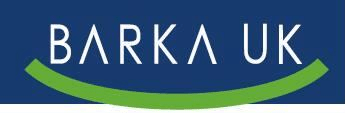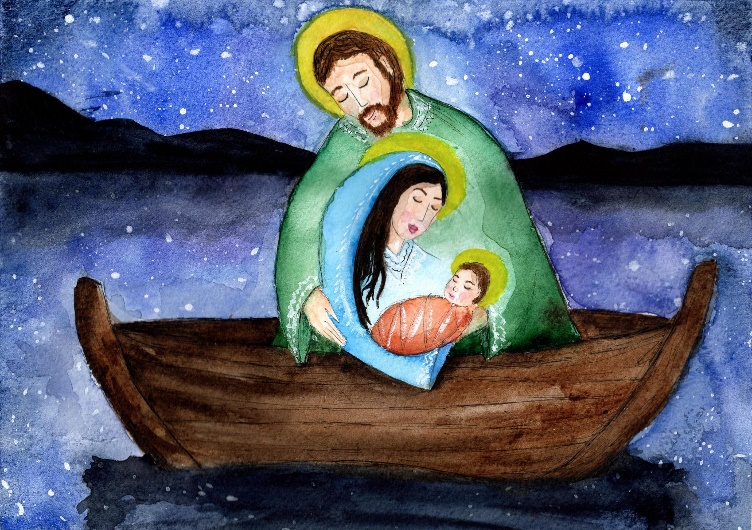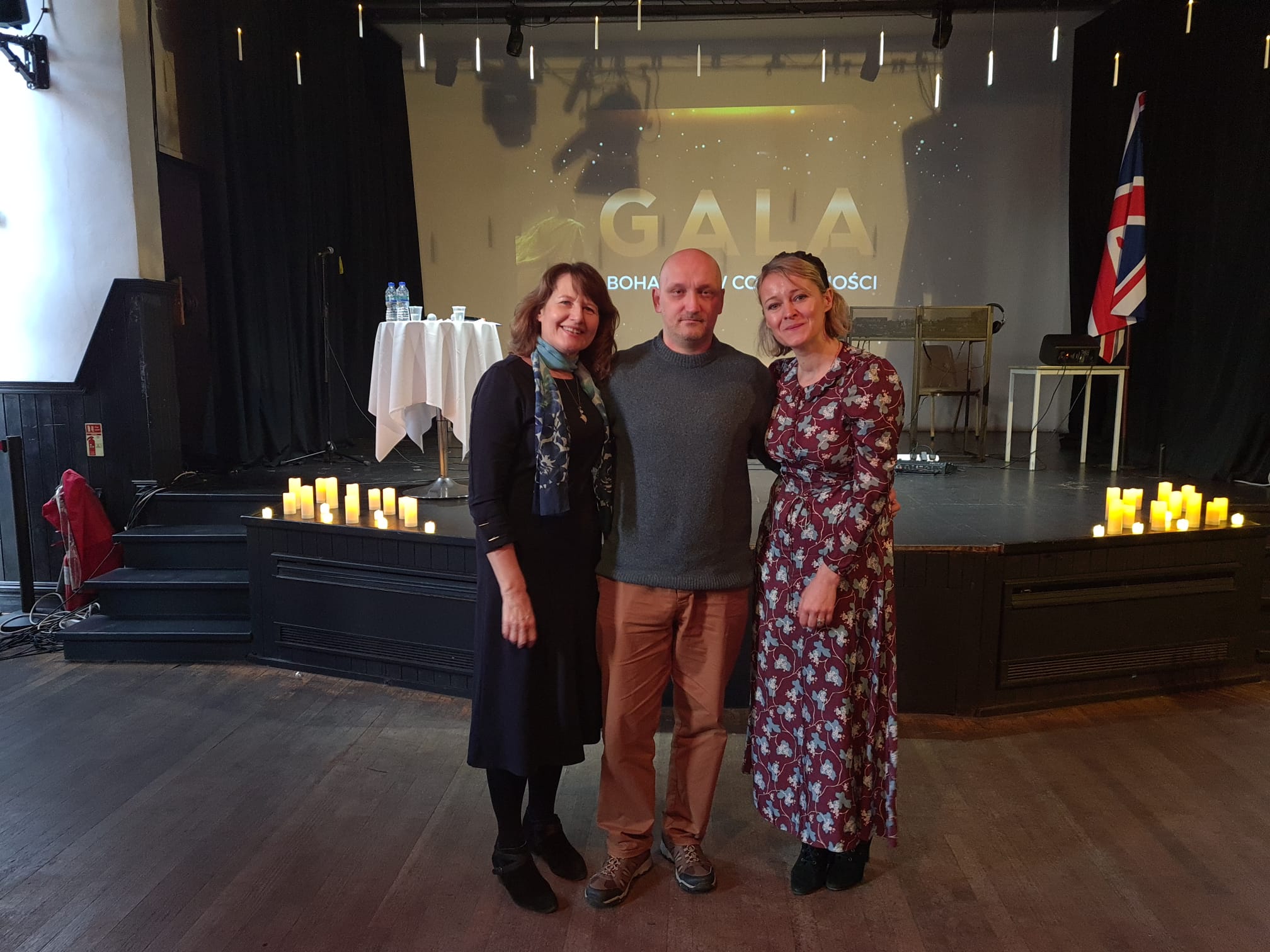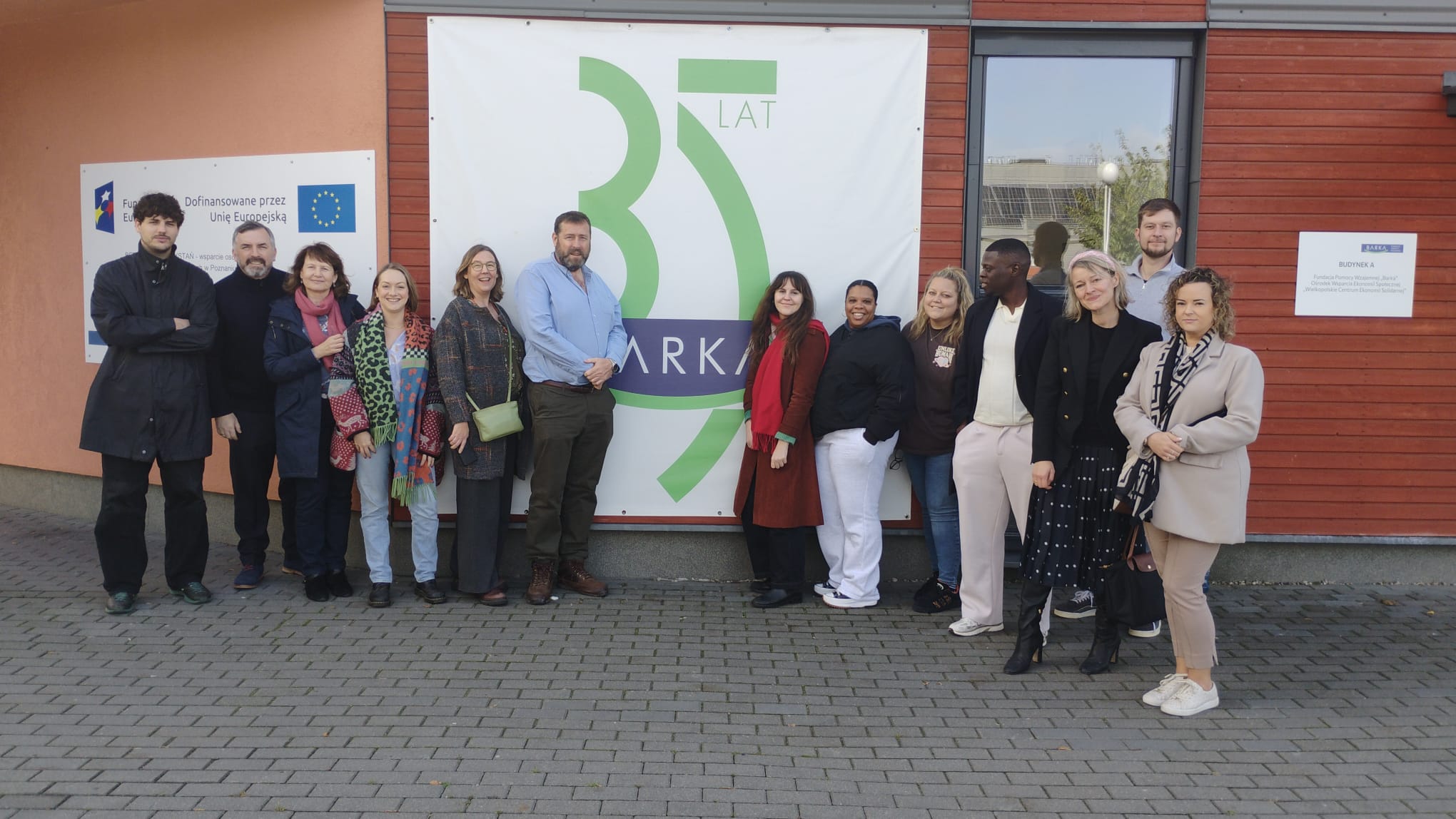Barka UK took part in the study visit of the King of the Pokomo Tribe of Kenya Makorani Mjidho VII to Greater Poland, who met with representatives of social economic entities and local authorities at Fundacja Pomocy Wzajemnej Barka. The Barka Foundation has been involved in the development of the social economy in Kenya for several years. The late Tomasz Sadowski was one of the elders of this tribe. He was invited in recognition of his services to the Kenyan community. In the words of Ewa Sadowska-Keogh, the director of Barka in England and Ireland: He supported children so that they could go to school, and also financially, in addition to his support for the Centre for Social Integration – and we continue his work. Barka, the African diaspora in England and the Pokomo tribe work together and are friends. Tomasz believed that Poland and Europe were prepared to understand the psychological differences and post-colonial problems of Africa.
The King first came to Barka in 2016, when Tomek Sadowski was inducted into the Council of Elders of the Pokomo Tribe. He then received the regalia and the cane of a member of the Council and the name Mutua: ‘the one who remains.’ This time the King came to Barka with August Bernard, his secretary, to ask for the organisation’s consent to name the children’s and mothers’ hospital, which is being built in the Tana River region in Kenya. after Tomasz Sadowski.
Representatives of Lampedusa e Linosa, part of the Sicilian province of Agrigento, which cooperates with Barka with regard to the influx of the substantial number of refugees from Ukraine to Poland, were also invited to take part in this study visit. These were: Carlo de Marco, the Secretary General of the Network of Coastal Cities and Islands and Advisor to the Mayor of Lampedusa, Pietro Pinto, the Project Manager of the ‘Coastal Cities and Islands Network’ and his wife, Father Giovanni from the parish of Mistretta in Sicily, and Antonio Turco, an Italian journalist dealing with social issues. Pietro Piento said: We come from Lampedusa, where we help migrants from Africa, and also the poorer inhabitants of this region. Our goal is to create a support network between associations of local authorities. We work with Africa and Europe. We also help Ukrainians and unemployed people. He went on to say: Our network of border island cities cooperates with local authorities and exhorts the government to carry out more political and solidarity activities, and to engage citizens to help.
The study visit is described below.
Monday, 13th February
The visit started with a discussion on the ‘System of social and professional inclusion and social entrepreneurship in practice’ at the Barka Poznan Headquarters. The King of the Pokomo Tribe, the representatives of the Border Towns and Islands Network from Lampedusa gave speeches. Barka also introduced Local Partnerships for Social Inclusion to the guests, along with the Wielkopolska Centre for the Solidarity Economy run by the Barka Foundation.



Later, there was a meeting of the community of Barka and refugees from Ukraine, during which the King was crowned by Ukrainian children, who put a handmade crown on his head.



The representatives then visited the Invisible Street Social Enterprise (Niewidzialna Ulica – Poznańska Wystawa w Ciemności) which inspired the King to partner with the Association of the Blind in Nairobi. Later, our the guests met with Barka community members and refugees from Ukraine who have participated in the social/professional integration programmes implemented by Barka since the beginning of the war in Ukraine. This was followed by a dinner.
Tuesday, 14th February
A visit and morning coffee at the Diakonijna Employment Company established by the Barka Mutual Help Foundation was next on a busy schedule, followed by a visit to the Centre of Social and Professional Integration in Kwilcz, and a meeting with the participants of the Centre, including 10 persons from Ukraine. In Kwilcz, they met representatives of Volkswagen Poznań – Fabryka Samochodów Dostawczych i Komponentów , which takes orders for Diakonijna Spółka Zatrudnienia on a daily basis.



On the same day, there was also a meeting replete with surprises in Kwilcz, when ArtZagroda gifted a sewing machine to a sewing workshop; and, as it was Valentine’s Day, all participants received handmade soaps in the shape of a heart. This gesture reminded us of the saying that: ‘It’s not how much you have, but how much you give to others and how you share with them.’


After lunch and the meeting with the Barka community in Chudobczyce, the group visited the Community garden and the organic farm. Later, after a quick drive to Władysławowo, and the First Barka Community House , they met with the Barka community members and its leader, Jerzy Stuglik, over coffee and cake. The day was rounded off with free time in Poznan for the delegates, followed by a dinner.
Wednesday, 15th February
The next day was just as busy: the group visited the Komorniki Centre for Tradition and Culture, where they met with the Head of the Komorniki City Council, Jan Broda, the Head of the Luboń City Council, Małgorzata Machalska, representatives of the Centre for Social and Professional Integration and other voluntary sector organisations, including the Social Cooperatives Initiative Group, the Head of the Social Welfare Centre and local entrepreneurs.



The group then proceeded to Poznan, where they had a meeting with the Deputy Mayor of the City of Poznań Mr Jedrzej Solarski.



After lunch at the Poznan centre, the participants in the study visit met the Social Emergency Association, a homelessness shelter which also supports refugees from Ukraine. The day finished with a farewell dinner and a moment for reflection on the visit.




